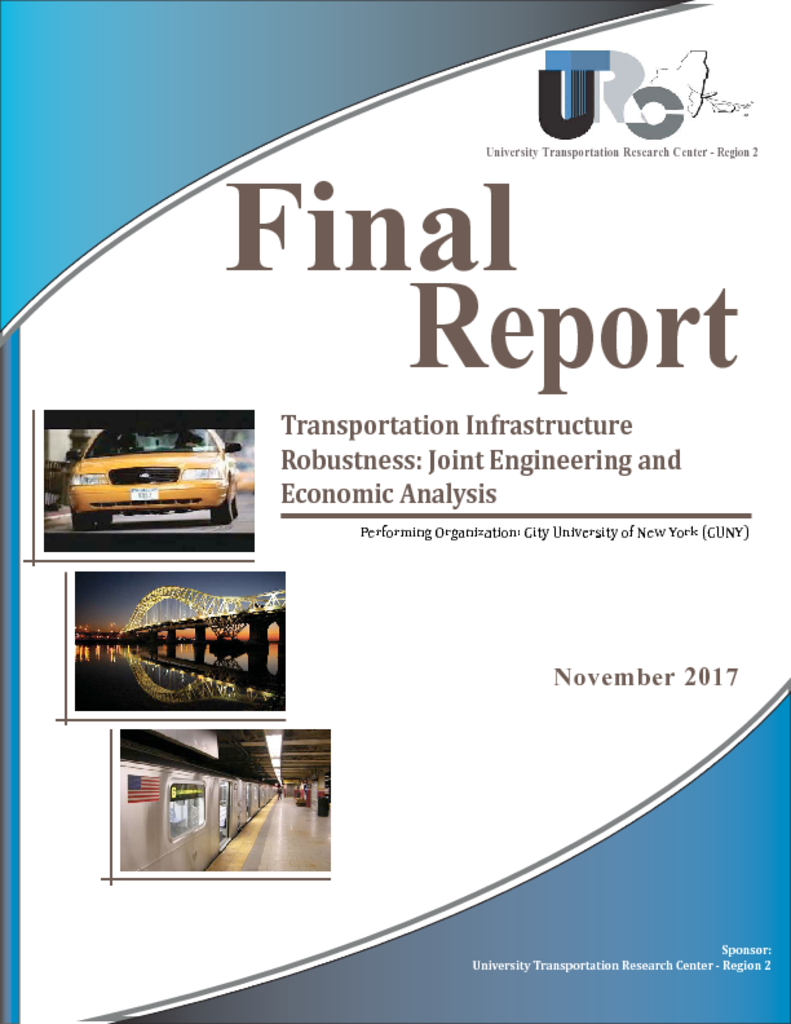The objectives of this study are to develop a methodology for assessing the robustness of transportation infrastructure facilities and assess the effect of damage to such facilities on travel demand and the facilities users’ welfare. The robustness of transportation facilities is related to two types of damage: a) longitudinal deterioration in facility engineering quality; and b) sudden shock due to unexpected extreme events. This study focuses on the first determinant and its economic implications. Achieving the stated objectives requires reviewing the basic principles of infrastructure durability, modeling the relation between travel demand and infrastructure damage, and analyzing users’ economic welfare. Economic welfare is expressed in terms of Consumer Surplus (CS) which is defined as the difference between what users of a transportation facility are willing to pay in terms of travel time and associated direct costs such as the cost of fuel and what they actually spend. When deterioration occurs in one facility within the network, the equilibrium travel time and associated costs on this facility will increase and thus travelers’ CS will drop.


